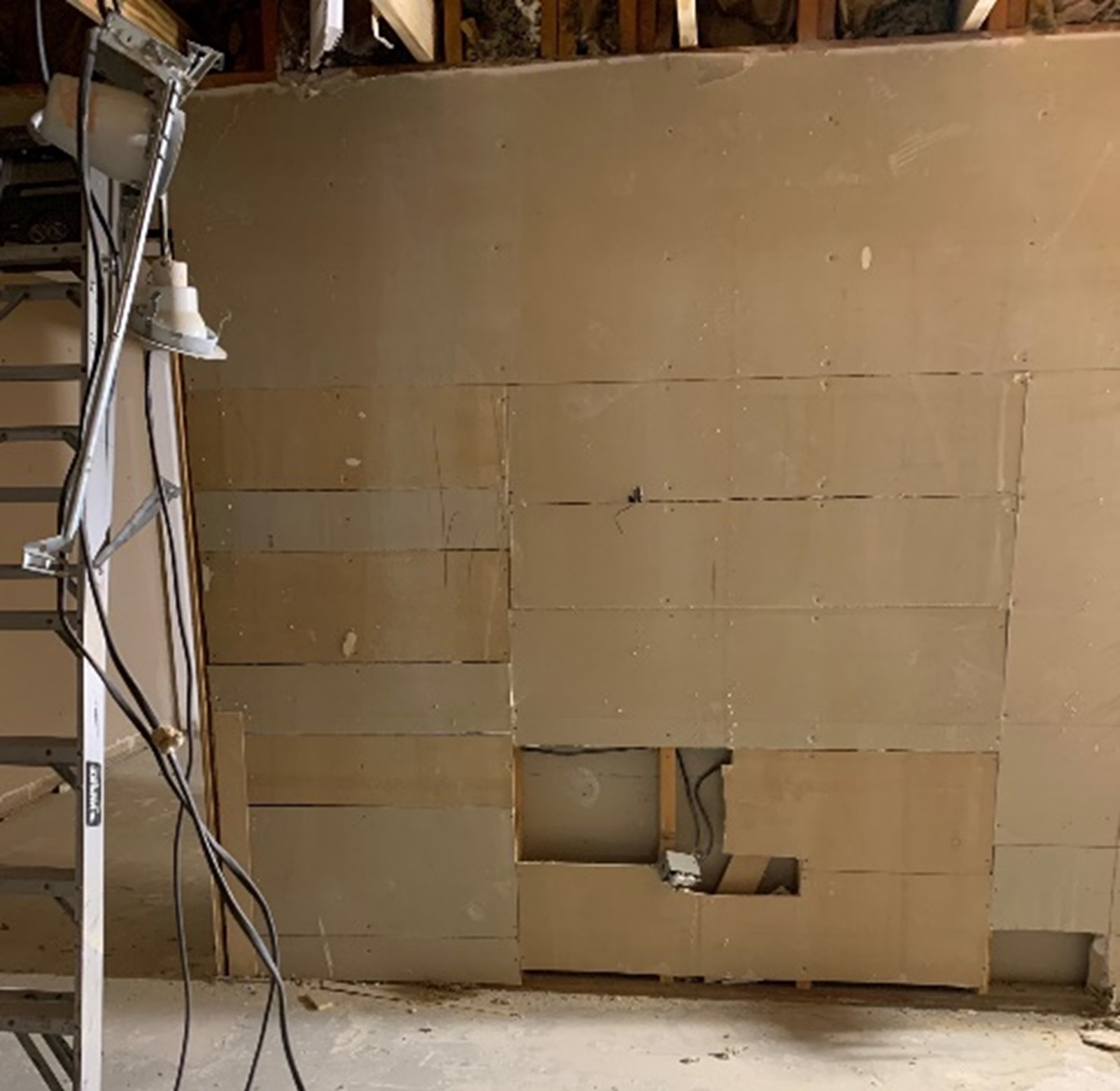Analysis of SBA’s 05.13.2020 FAQ on the “necessity certification” regarding the PPP Loan
If you’ll allow me to run with an admittedly-risky sports analogy, I believe I can establish that there is at least some instructive comparison to be made between the manner in which the NFL damaged the Cowboys with a bad call, and the manner in which the SBA’s administration of the PPP loan program threatens businesses with its retroactive rule making. If you are here for “just the facts,” then scroll down to the “Final Score” and “Bottom Line” sections.
Sometimes life imitates sports
You may recall the cold feeling of betrayal which crept over Cowboys Nation during the 2015 NFC Divisional Playoff Round, after Dez Bryant caught a 30-yard pass from Tony Romo, against the Packers, at Lambeau field, on a 4th down play, only to have it stripped away by a distant apparatchik misapplying the NFL’s rules. The results of this play should have put the Cowboys 1 yard away from a 2 point lead in the Divisional Playoff Round with around 4 minutes remaining in the game. The play itself was epic, and deserved a place on the highlight reels for decades to come. Unfortunately, we know now that the ruling of the officials on the field, in Green Bay, Wisconsin, (legal catch inside the 1-yard line) was wrongly overturned by league replay officials in the league’s New York office. As a result, the Cowboys lost the ball, then the game, and then Tony and Dez, who were both out of the league shortly thereafter. The Cowboys have been little better than average ever since.
Officials on the field rule it a catch
In response to the COVID scare, Congress modified the SBA’s Payroll Protection Program (“PPP”) and eased SBA’s traditional credit process by substituting a self-certification process for borrowers to affirm their eligibility and need for a loan under the amended PPP program – most notably including a certification that a PPP loan was “necessary . . . to support ongoing operations” (the “necessity certification”).
Officials in the office overturn the ruling on the field
However, after billions of dollars of these loans were already funded, certain thought leaders started driving the narrative that big companies should either not have access to these loans, or that the government should make up new, post-funding requirements for “large” companies, then force compliance, even though new requirements did not exist at the time they signed the loan documents. People on this side of the argument believe it unjust to allow a company access to taxpayer funds unless that company first does everything in its power to avoid that necessity. Simply put: companies should use their own money before asking for other people’s money.
Opposing them are those people who would show that Congress expressly waived the “small” business qualification from the COVID relief loan program; and further, that the Congressional intent to keep people on private payroll (and not on public assistance) is efficiently carried out by issuing loans to large companies, who have larger numbers of people on payroll. People on this side of the argument likely believe it unjust to compel a company to weaken itself by tapping liquid reserves or going into debt to respond to a government-mandated market distortion over which it had no control.
In response, the SBA has been issuing guidance in the form of Interim Final Rules and FAQs which have all unfortunately jumbled together into a mass of confusing, contradictory information. The FAQ current through May 13, 2020 can be found at https://home.treasury.gov/system/files/136/Paycheck-Protection-Program-Frequently-Asked-Questions.pdf
For example, FAQ 17 states that borrowers who filed or approved a loan application based on the Final Rule published 04/02/2020 are not required to take any action based on the update “guidance” in subsequent FAQs. This FAQ contains no language regarding loan amounts, necessity verifications, or company size. So that means “done, and done” for anyone who funded prior to the issuance of subsequent rules or guidance?
NotSoMuch.
SBA also announced in FAQ 39 that it will audit all loans over $2million for the veracity of the “necessity certification,” and it further informs that it will expand its probes to “other loans as appropriate.” Of course, SBA didn’t define “as appropriate,” so FAQ 39 likely conflicts with FAQ 17 to the extent the SBA might use the “as appropriate” language to sneak around FAQ 17’s language allowing borrowers to rely on the rules in place at the time they obtained their loan.
FAQ 31 signals additional potential unpleasantness for borrowers with larger loans, indicating that the “necessity certification” will be analyzed taking into account “current business activity and their ability to access other sources of liquidity sufficient to support their ongoing operations in a manner that is not significantly detrimental to the business” . . . it is unlikely that a public company . . . will be able to make the required certification . . . .”
This language does appear to have created a post-funding requirement that businesses should tap their reserves, and potentially go into debt to keep employees on payroll during a government-imposed contraction of the economy. Thus, FAQ 31 may also be in conflict with FAQ 17 and/or 46.
Worse yet, this lack of clarity also threatens to undermine the purpose of the PPP loans, because it will lead many companies to conclude that the better (not necessarily preferred) path for the business is to return the loan proceeds and lay off employees, thereby “rightsizing” the business to the current environment, and entirely avoiding the risk and expense of agency action. That would be a regrettable outcome for everyone.
This doesn’t mean you lose the game
With my last nod to this fading analogy, I will observe that despite the fact the Cowboys lost the game on a blown call, you still have the time and opportunity to consult with legal counsel and financial advisors. So hold out hope for a good outcome, even if you are one day called into question by the SBA. Heck, even the NFL finally admitted it blew the call.
Final score
The FAQ release on May 13, 2020 was really all about FAQ 46, which is SBA’s attempt to appease both sides of the “necessity certification” argument. Most notably, it seems to provide safe harbor to anyone who took a loan under $2million, but with regard to ONLY the necessity certification. For loans in this range, borrowers are deemed to have made the necessity certification in good faith.
Even better, FAQ 46 contains a second safe harbor from prosecution, also limited to the “necessity certification,” but which appears to cover even loans over $2million. If a borrower repays a PPP loan after receiving an SBA determination of non-eligibility for forgiveness, then SBA will not take administrative action, or refer the case to another agency (read: send your file to DOJ for prosecution) if the borrower repays the loan after receiving the determination. Keep in mind that the SBA doesn’t say how soon such a loan must be repaid, but if you find yourself in this situation, then take a moment to become familiar with the word “PROMPTLY.” You’ll need fewer antacids.
Bottom line With regard to the “necessity certification,” FAQ 46, considered together with FAQ 17 likely combine to provide a safe harbor for borrowers who received a loan of less than $2 million, unless that loan falls into SBA’s “other loans as appropriate” category, which will be a political determination no one can currently predict, as it may also be based on rules the SBA hasn’t yet made up. This assessment is just a general observation, and you should visit with your counsel and consider the specific facts of your individual situation.
Let’s toss it to the booth for the Post-game show
The “other loans as appropriate” language in FAQ 39, translated to real-world English, means that every PPP loan remains subject to being audited under rules which the SBA has yet to make up. Don’t be fooled by FAQs or agency guidance. In the governmental bureaucratic world there is but one rule, which is the Golden Rule, providing that “he who has the gold makes the rules.”
It currently appears likely that the SBA is going to limit its auditing efforts to analysis of large loan amounts, or those which appear to be irregular, or worse. But don’t forget this is an election year, during which COVID and associated matters will be weaponized; and also that significant change in Washington D.C. could have negative results for taxpayers and job creators. If your loan is under $2million, and you applied in good faith, then don’t lose any sleep. However, no matter the amount of your loan, you should check with your accountants and legal counsel to ensure that you and your company are confident in your choices to date with regard to your PPP loan.

Brian Benitez is a partner at Ensley Benitez Law, P.C., whose practice emphasizes litigating matters important to small and medium businesses arising from areas including Construction Law, Employment Law, Contracts Law, Texas Property Code Liens, and Agency Law (e.g. representing businesses against government entities, such as OSHA, EEOC, TDI, TX Comptroller). Ensley Benitez Law, P.C., 8140 Walnut Hill Ln., Ste. 835, Dallas, TX 75231 469-501-5562, brian@eblawtexas.com.
Nothing herein constitutes legal advice, and you do not develop an attorney-client relationship with Brian Benitez or anyone at Ensley Benitez Law PC by reading this article, visiting our website, attending any speaking engagement or seminar, or communicating with us in any manner, even if that involves you sending documents to us. If you would like to become our client, then we would love to talk to you. Please contact our offices so we can schedule a consult and execute a representation agreement.


.png)





